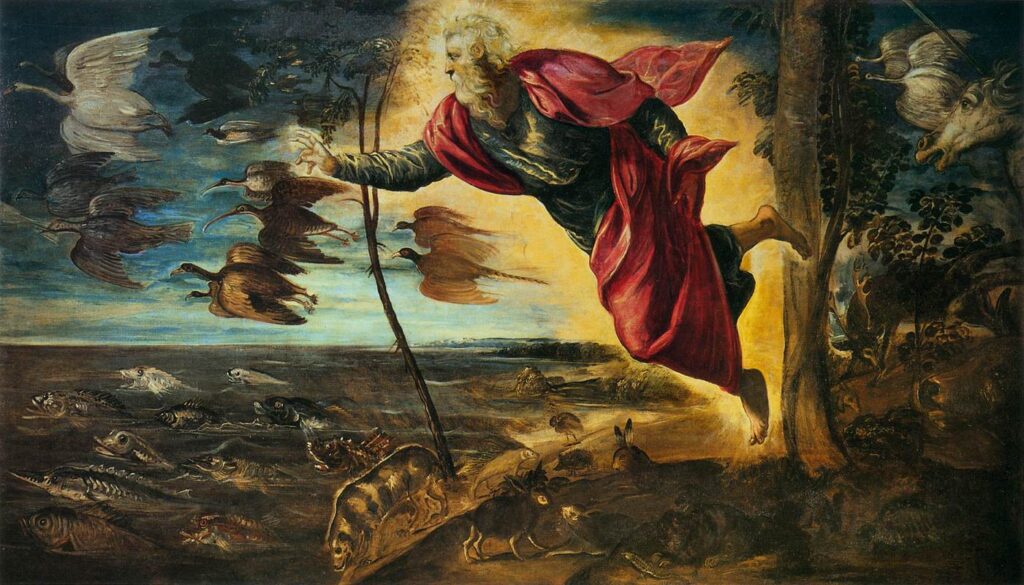In his newly rediscovered lectures, now published as The Divine Project, Joseph Ratzinger discusses the significance of the theology of Creation, with special focus – among many important things – on the challenge of seeing Creation as the first and continuing unfolding of God’s “project” of loving redemption towards the human person, the only creature on earth God wanted for himself.
Earlier on this site, speaking of the high stakes of Creation, I noted the intellectual impediments that impair Anglo-American understanding of the theology of Creation. My claim is that the ongoing impact of Deism results in a somewhat removed, off-limits God, which thereby eviscerates a genuine Catholic understanding of Creation because it essentially closes off the awareness of God’s action in history, including the history of our own lives.
This leads directly to what sociologists Christian Smith and Melinda Lundquist Denton have usefully identified as Moral Therapeutic Deism (MTD), where God is like a fire alarm box: “break glass, pull down (from heaven) in emergencies.”
And to look around at America today, it appears that such a distant and manageable God is a rather comfortable deity for many of our contemporaries.
A God who is active in life generally and lives more particularly (including mine) is a God to whom I must relate – am in relationship with whether I want to be or not – and to whom, therefore, I am accountable. He’s up close and personal. He numbers the hairs of my head. And may do all sorts of unpredictable things that make us uncomfortable.
The MTD alarm box “God” isn’t – and doesn’t.
A “God” who can be put on a pedestal or in the box – “break glass when needed” – gives me “autonomy” and respects my “privacy.” This divine Jeeves is also conveniently on call to serve me when I mess up beyond my level to tolerate or to repair.
But he’s not the God of Abraham, Isaac, and Jacob – or Jesus.
Understanding Creation as the ongoing sustaining of all that exists inherently involves God in all we do. That is, of course, what Christians traditionally understand man’s relationship with God to be. As Christian parents have always told even little children, “God is everywhere.”
The problem is: we want to keep the Garden, but with our own section of Eden fenced off from the landlord. As Fr. Paul Scalia has put it, reflecting on the Prodigal Son: “We want the Father’s gifts without the Father.”

Recovering a sense of the Christian understanding of Creation, including the crucial concept that God continues to sustain His Creation, is necessary to making real what we talk about theoretically when speaking of human “participation” (as opposed to “independent involvement”) in the work of Creation. People generally have fewer problems about this when it comes to human dominion over Creation – shaping the material world to human good – but even here notions of what constitutes the “good” often really mean just a poor and usually temporary self-interest.
Where the problems really arise these days is when it comes to human participation in co-creatorship with God through procreation. The idea that God has anything to say – much less anything normative to say – about what “two people do in the bedroom” is an increasingly alien concept, even among professed Christians. It’s as foreign as the idea that sexual activity even reflects the Trinity, in which God, who is the “Lord and giver of life,” has established a life-giving meaning to the union that “man should not put asunder.”
Pace all the Synodal “reformers” who regard Catholic sexual ethics as (allegedly) devaluing the meaning and dignity of sex, it is precisely the Catholic understanding of sex that shines a light on the real devaluation – mere eroticism separated from objective meaning and significance.
Cardinal Ratzinger was, therefore, spot on in recognizing the critical importance of recovering a total “posture” of creation. I say “posture,” consciously lifting that word from Sources of Renewal, Karol Wojtyła’s 1972 book about the implementation of Vatican II. In it, Wojtyła speaks of “postures” Christians should have towards various broad swaths of theology, like “Creation” or “redemption” or “mission.”
By “posture” he meant more than just a theoretical understanding. He meant a concrete understanding, a way of looking at something that then shapes the way one looks at everything else.
Recovering a Catholic “posture” vis-à-vis Creation is sine qua non for addressing no small number of questions – including sexual ethics – that currently puzzle quite a few Catholics. “Co-creatorship” with and under God is part of Creation. So is the normativity of “male and female He created them.” So is the distinction between “making” in the world versus “creating” a child, with far-reaching implications for a society fixated on the technological imperative, which equates the embrace of human love with the artificial reproduction industry engaged in “making a baby.”
But recovering a Catholic “posture” towards Creation shapes other aspects of our Genesis heritage, too. It fosters “care for our common home” without losing sight of the fact that the world is given to man as his home and that he is not just another biological and somewhat baneful carbon footprint in a world of sacred algae and species equality. It teaches him that he is to use but not abuse that world. Green fanatics please note: abusus non tollit usum.
Finally, recovering a Catholic “posture” towards Creation has direct implications for Catholic life more broadly understood. The “hands-off” MTD “God” leads to loss of belief in Divine Providence and a false sense of life as more or less fenced off from Divine norms for “independent” (self-willed) human action.
We desperately need to see the Divine Project in our lives.
*Image: Creation of the Animals by Jacopo Tintoretto, 1551-1552 (Gallerie dell’Accademia, Venice)
You may also enjoy:
Pope St. John Paul II’s All Creation Rises to New Life
James Matthew Wilson’s Recovering the Theology of Creation















